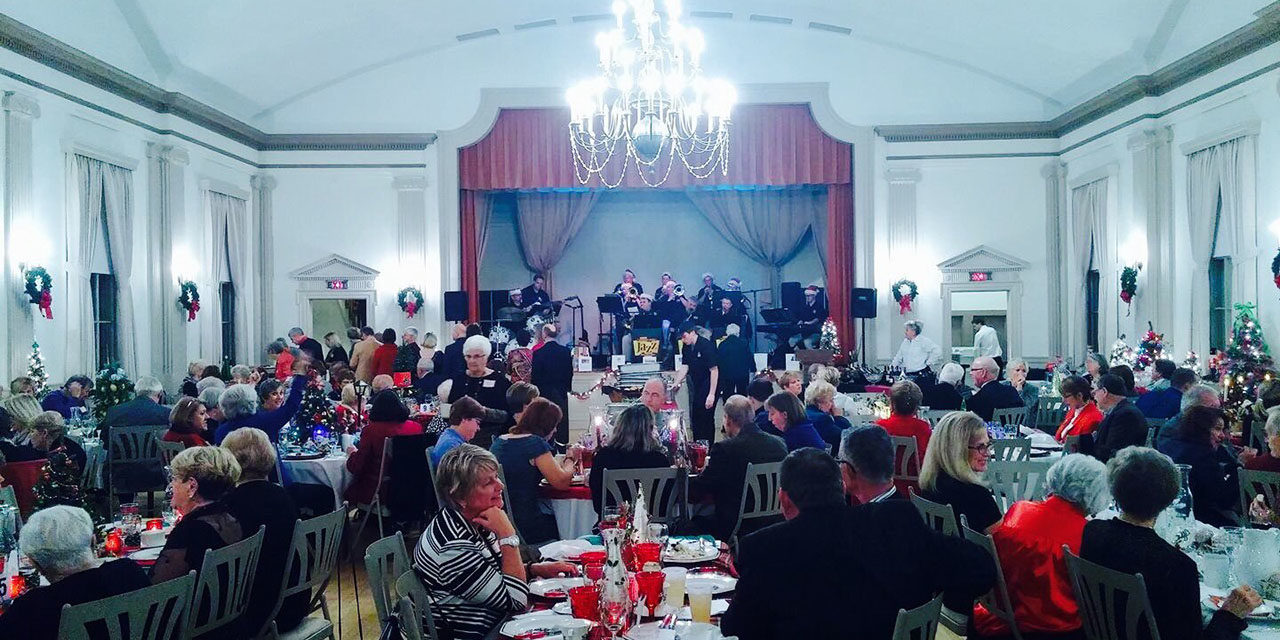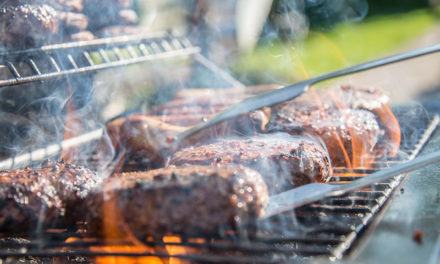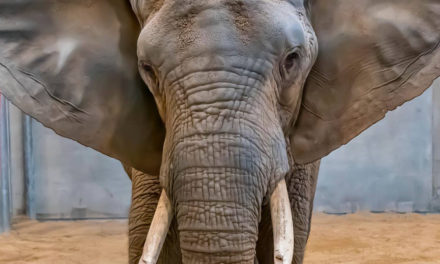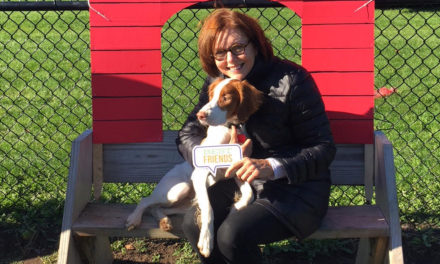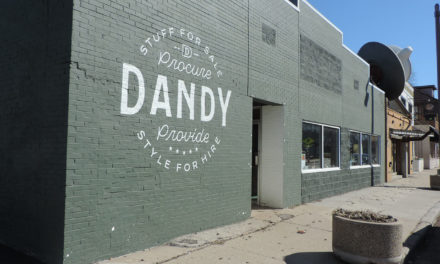With its stately columns, ornate cornice, and tall double doors, the grand entrance to the Wauwatosa Woman’s Club (WWC), at 1626 Wauwatosa Avenue, beckons newcomers. Aside the entrance, on the red brick facade, a copper plaque reads “National Registry of Historic Places.” Indeed, this elegant building, called home (away from home) by 200 Wauwatosa women, is also evidence of the rich history of women’s movements across the country and in Wauwatosa.
The clubhouse, a Georgian Revival Style building, was just a vision back in 1904 when Miriam Hoyt (yes, that Hoyt) served as club president. Up until that point women had been gathering at members’ homes, in rooms above the library, and in the parlor of the Greggs’ Irvington Hotel on Harwood Avenue. The organization itself had formed in 1884 by other Tosa residents with familiar names: Swan, Warren, and Stickney. (All street names, for those new to Tosa.)
It was around this time that the formation of women’s clubs across the country was gaining steam. Prior to the middle of the nineteenth century most women’s groups were offshoots of men’s groups or church aid societies and were typically controlled by men. Two women’s clubs changed that. When New York journalist Jane Cunningham Croly was excluded from the New York Press Club, she founded the women’s club, Sorosis, in response. Meanwhile, Julia Ward Howe founded the New England Women’s Club. The two traveled the country together advocating for clubs controlled exclusively by women. The clubs were intended to enhance the education of women and improve society through community service.
Upon entering the WWC clubhouse and taking a sharp left, one would find herself immersed in a small museum of sorts, filled with artifacts from Wauwatosa’s past: a spinning wheel, Indian Heads from the area, a wedding dress worn by Wauwatosa’s first bride, Emerson D. Hoyt’s top hat collection. It was Hoyt who stipulated that a room be dedicated to preserving the city’s history in honor of his daughter’s interest in the subject. This mini museum is open by appointment.

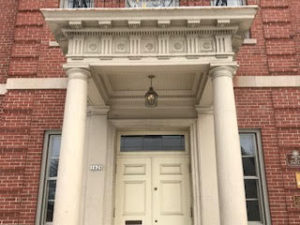 Whether the WWC‘s founders were influenced by Croly and Howe is anyone’s guess. We do know from their constitution in 1894 that the club’s purpose was “the social and intellectual development of women through a free interchange of thought, by a course of careful study, essays and discussions.”
Whether the WWC‘s founders were influenced by Croly and Howe is anyone’s guess. We do know from their constitution in 1894 that the club’s purpose was “the social and intellectual development of women through a free interchange of thought, by a course of careful study, essays and discussions.”
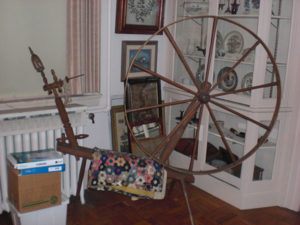 Among the topics of the day in the late nineteenth and early twentieth centuries was the Woman’s Suffragist Movement. In 1869 Elizabeth Cady Stanton and Susan B. Anthony founded the National Woman’s Suffrage Association, and as the formation of woman’s clubs across the country grew, so too, did the growth in suffrage organizations.
Among the topics of the day in the late nineteenth and early twentieth centuries was the Woman’s Suffragist Movement. In 1869 Elizabeth Cady Stanton and Susan B. Anthony founded the National Woman’s Suffrage Association, and as the formation of woman’s clubs across the country grew, so too, did the growth in suffrage organizations.
Also holding the attention of the Wauwatosa women, however, was fundraising for a place they could call home. Miriam Hoyt’s father and Wauwatosa’s first mayor, Emerson D. Hoyt, had donated land for the building. Over the course of nearly 20 years, the women raised $20,000 through a variety of projects including sewing, knitting, rummage sales, concerts, pageants and talent shows. They broke ground on the building in 1924.
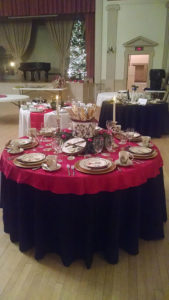 During this time, civic engagement and service among the Wauwatosa women continued. With the onset of World War I the women formed a Red Cross Auxiliary, sent assistance to French and Armenian war orphans, made Christmas baskets for wounded veterans, and made surgical dressings for injured soldiers. Their commitment to the war effort continued during World War II.
During this time, civic engagement and service among the Wauwatosa women continued. With the onset of World War I the women formed a Red Cross Auxiliary, sent assistance to French and Armenian war orphans, made Christmas baskets for wounded veterans, and made surgical dressings for injured soldiers. Their commitment to the war effort continued during World War II.
In 1937, a celebration was held in Wauwatosa. The WCC’s debt had been paid, and the clubhouse at 1626 Wauwatosa Avenue now belonged to the WCC into perpetuity. The women burned the $45,000 mortgage document with elation.
 The story doesn’t end there. Just as its early members patiently toiled and saved to build the club, today’s members do the same to preserve it. Aside from membership dues, revenue is generated from rentals for events including weddings, memorial services, showers, and birthday parties. Since Hoyt contributed the land, other community members have made donations to the club, too. These sources of revenue have been critical to “keep the building modern in its functioning,” said Kay Tierney, current WCC member. An addition, which included a wheelchair- accessible entrance, patio, updates to the restrooms, and an elevator, was completed in 2008. The facility now complies with ADA standards. More recently, the kitchen was updated in 2018.
The story doesn’t end there. Just as its early members patiently toiled and saved to build the club, today’s members do the same to preserve it. Aside from membership dues, revenue is generated from rentals for events including weddings, memorial services, showers, and birthday parties. Since Hoyt contributed the land, other community members have made donations to the club, too. These sources of revenue have been critical to “keep the building modern in its functioning,” said Kay Tierney, current WCC member. An addition, which included a wheelchair- accessible entrance, patio, updates to the restrooms, and an elevator, was completed in 2008. The facility now complies with ADA standards. More recently, the kitchen was updated in 2018.
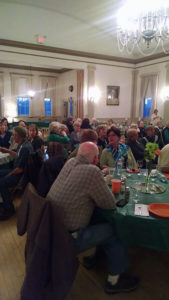 Just as the building continues to be renovated to reflect the times, membership continues to adapt and change, too. Membership in woman’s clubs hit its peak in the 1940s and 50s. In 1944 the WCC roster numbered 450 with a waiting list of 220. Many women stayed home during this period to raise their children. The desire for social, educational, and civic engagement was strong. This changed in the 1970s when women joined the workforce in numbers not seen in the past. It was the in the late 1970s that the Wauwatosa Woman’s Club began losing members. By 2010 the number had dipped to 80.
Just as the building continues to be renovated to reflect the times, membership continues to adapt and change, too. Membership in woman’s clubs hit its peak in the 1940s and 50s. In 1944 the WCC roster numbered 450 with a waiting list of 220. Many women stayed home during this period to raise their children. The desire for social, educational, and civic engagement was strong. This changed in the 1970s when women joined the workforce in numbers not seen in the past. It was the in the late 1970s that the Wauwatosa Woman’s Club began losing members. By 2010 the number had dipped to 80.
But Hoyt, Stickney and others would be so pleased – membership is on an upswing. In 2019 over 200 women were members of the club. What changed?
The same women who joined the workforce in the 70s and 80s are now retiring and looking for the same type of purpose and camaraderie shared by the club’s founders.
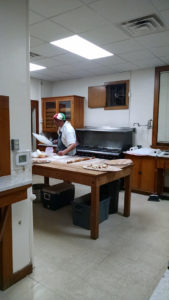 Still, vibrancy required outreach. The WCC members channeled its early members’ passion for building a clubhouse in order to build its membership. Members were encouraged to bring guests to different events which was a “key to its growth,” said Debbie Dubinski, current club president. They also share their space with the community for events (free of charge) such as a neighborhood cribbage tournament and school fund drives. It also serves as a regular voting location.
Still, vibrancy required outreach. The WCC members channeled its early members’ passion for building a clubhouse in order to build its membership. Members were encouraged to bring guests to different events which was a “key to its growth,” said Debbie Dubinski, current club president. They also share their space with the community for events (free of charge) such as a neighborhood cribbage tournament and school fund drives. It also serves as a regular voting location.
In September, the WCC will celebrate its 125th anniversary. Among its activities will be two drawings which will award the space for a free event to two non-profit organizations. “Our goal is to keep membership growing by bringing the outside in,” Dubinski said.
Of course, it is the interesting program offerings that keep women coming back for more, Dubinski and Tierney agreed. Just in the past few months alone, the club has hosted trivia night, soupfest, and a fashion show. Regular gatherings include book clubs, afternoon teas with featured speakers, and luncheons. Outings are also scheduled to restaurants and cultural destinations.
A variety of different activities are planned to suit a spectrum of ages and stages. For example, during a number of the teas, some love using the original tea service, having a structured format, even wearing white gloves and hats as some remember doing in years past. Others prefer more unstructured social gatherings. “We are willing to change with the times. We respect the past but also are willing to incorporate in our events every age group,” Dubinski said.
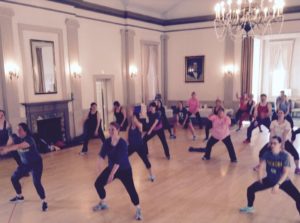 Service is a big component of the club, too. Through donations and service projects, the WCC supports local organizations such as Kyle’s Corner and Tosa Food Pantry. With education always a priority to the WCC, the club also offers scholarships. Five students are awarded a $1,000 renewable scholarship each year.
Service is a big component of the club, too. Through donations and service projects, the WCC supports local organizations such as Kyle’s Corner and Tosa Food Pantry. With education always a priority to the WCC, the club also offers scholarships. Five students are awarded a $1,000 renewable scholarship each year.
“But the biggest service we do is bring women together in the first place,” Tierney reflected.
Membership in woman’s clubs nationally continues to decline with many organizations folding altogether. Yet the Wauwatosa Woman’s Club thrives. Dubinski attributes it, at least in part, to 1626 Wauwatosa Avenue. “It’s the woman’s clubs with no clubhouse that are folding,” Dubinski said. “The women don’t have a place to go home to.”
For 125 years, Wauwatosa women have gathered for companionship, intellectual stimulation and a chance to give back to the community. Because of the foresight of Miriam Hoyt and others, many of those events have taken place inside the walls of the two-story, elegant brick building that has come to feel like home to generations of Tosa women.
A special thanks to Kay Tierney and Debbie Dubinski for providing written materials and images.
Interested in attending an event? Becoming a member? Visit the website, www.wauwatosawomansclub.com, call at (414) 257-9935, or send an email to president@wauwatosawomansclub.com.
Current President – Debbie Dubinski
Incoming President – Kathy Oelstrom
You can also visit the WCC during a September, 2019 Open House in honor of the club’s 125th anniversary.

